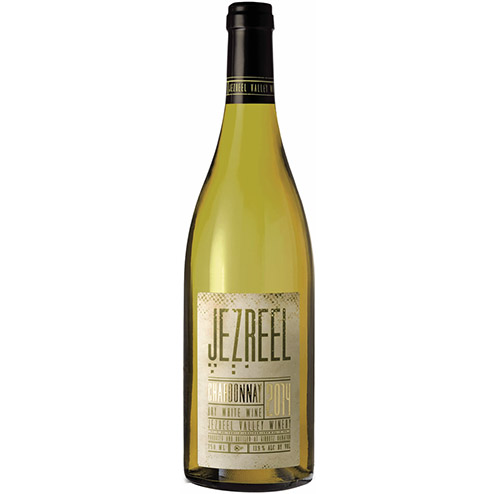






Crazy. Jezreel Valley Winery’s founders are crazy. Tech titans such as Apple’s Steve Jobs and Oracle’s Larry Ellison use the word crazy to refer to those whose thinking is outside of the box, innovative and disruptive.
As Ellison said, “You’re not going to succeed when everyone is doing the same thing… accept different thinking.”
Yehuda Nahar and Jacob Ner-David, co-founders of Jezreel Valley Winery, are anything but crazy. Yet this five-year-old winery is leading a disruptive wave and making wines that others, both in and outside of Israel, might consider crazy.
But crazy is not Jezreel’s goal, original is: “original Israeli,” more specifically.
The three red grapes that Jezreel has chosen to focus on are syrah, carignan and argaman.
Syrah, also known as shiraz, is a grape used to make world-class wines in places such as Southern France’s Rhone Valley as well as Australia. Jezreel believes this grape is ideally suited to the Mediterranean climate of Israel and when planted in the correct location, harvested at the right time and then made into a wine that allows the grape to express its true character, Israeli syrah can be uniquely Israeli and a perfect complement to Israel’s Middle Eastern food and warm climate.
Carignan is a grape that while widely planted around the world, has a reputation for being a stubborn grape. It is late to ripen, susceptible to rot and its tough stalks make it challenging for machine harvesting. Carignan became a widely planted grape due to its ability to yield a very high number of grapes per vine. It is for this reason that it was a variety planted in Israel, specifically when Israel was making kiddush wine and quality was of secondary concern to quantity. It took an innovative and stubborn winery such as Jezreel to make a world-class wine out of carignan and Jezreel is very proud of the fact that their carignan is the first Israeli and kosher wine on the wine list at a three-star Michelin restaurant in France.
While Jezreel believes that their use of syrah and carignan is distinctly Israeli, they took this philosophy to the next level with their use of the indigenous grapes argaman and dabuki.
Argaman is a modern Israeli grape, having been created (a cross of two other grapes) in Israel in the 1970s to provide color to Israeli red blends. It quickly fell out of favor, and other grapes such as petite sirah were instead used to provide the color to blends. A few attempts to make quality table wine from argaman were made at other wineries, but Jezreel has surpassed the others with their top label single varietal argaman wine.
Dabuki is a white grape indigenous to Israel. And using the dabuki grape, Jezreel made possibly their riskiest wine: a “pet-nat.” Pet-Nat, short for pétillant-naturel, is a sparkling wine, made by allowing a wine to start its fermentation in tanks, but then finish in the bottle, capturing the carbon dioxide that is a byproduct of fermentation, giving the wine bubbles. When done right, pet-nats can be a great sparkling alternative to Champagne. But the method by which the bubbles are captured is considered by many to be unstable and risky, so it is not a commonly used method.
The release of Jezreel’s pet-nat just made quite some noise in Israel. Itay Gleitman, who is the wine writer for the israeli newspaper Ha’aretz, just published an article raving about the wine as well as about the winery’s creativity.
While Jezreel’s first pet-nat was not exported outside of Israel, they are attempting two pet-nats from the 2017 harvest, and hope some will make its way to the US.
A final wine worth mentioning, in particular, as it is a wine worth seeking out as we enjoy the final warm days before fall and winter, is the Jezreel rosé. While rosé has over the last few years quickly become very en vogue, Jezreel’s 2016 rosé of course has something unusual about it—a white grape. Rosé is a wine that we drink chilled like a white wine, but it is made (and gets its pink color from the skins) of red grapes. Breaking convention, Jezreel blended Sauvignon Blanc into their rosé, giving it a bit more personality and a lovely citrus note not found in most rosés made exclusively from red grapes.
So if you like to be ahead of the curve, do things a bit differently and think outside the box, Jezreel wines are worth seeking out.
Jezreel Valley Winery adumim: A blend of Jezreel’s primary red grapes, syrah, carignan and argaman, “adumim” is a fruit-forward and food-friendly wine. A medium body with hints of dark berries, this wine is a great pairing for grilled dark chicken cutlets.
Jezreel Valley Winery rosé: This refreshing rosé has a wonderful lip-smacking acidity and unique citrus note from the Sauvignon Blanc and is perfect with a salad, pan-seared fish or on its own.
Jezreel Valley Winery syrah: With dark berries and notes of herb, spice and earth, this wine has soft, silky tannins and will pair well with savory lamb.
Jezreel Valley Winery carignan: This full-bodied, powerful, yet refined wine has rustic tannins with earthy and spicy notes as well as hints of tart blackberries, black currants and espresso. Sublime with a standing rib roast or duck à l’orange.
Jezreel Valley Winery Argaman: Red berries and toasty oak frame this medium- to full-bodied wine that is robust yet not overly heavy and quite complex. This wine will pair nicely with Moroccan chicken or veal osso bucco.
By Gary Landsman
Gary Landsman has been a passionate wine lover and professional for over a decade and is the owner of Taste Wine Co., an innovative wine shop in Manhattan’s East Village.










